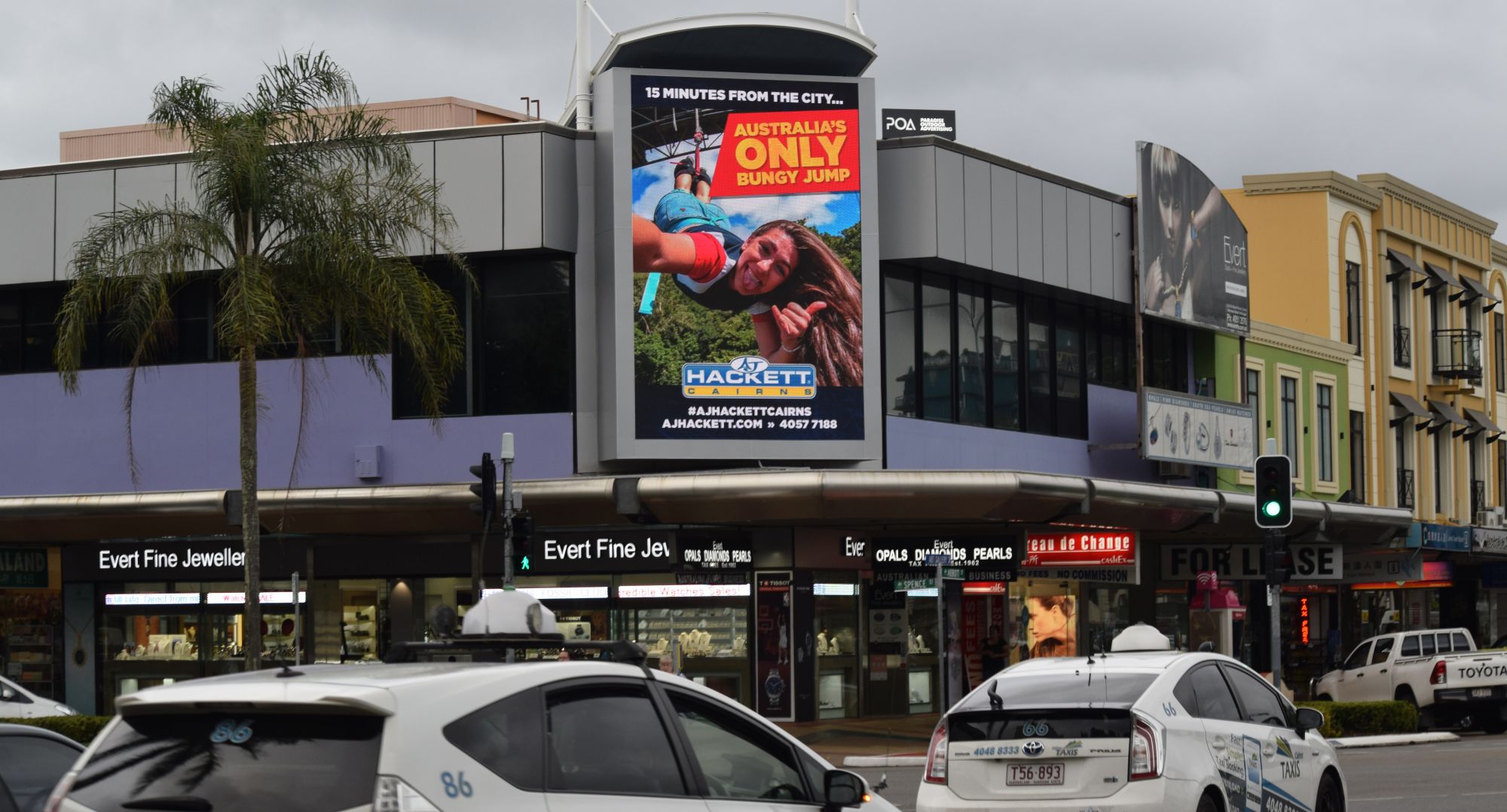[Ultimate Guide] Everything About Putting up a Digital Billboard
What is Digital Billboard Advertising?
Difference Between Traditional Billboards and Digital Billboards
What Are the Benefits of Using Digital Billboards?
Places Suitable for Putting Up Digital Billboards
How Much Does it Cost to Put Up A Digital Billboard?
Factors to Consider When Putting Up A Digital Billboard
Bottom Line
Digital advertisement has become the marketing norm for almost all industries and businesses. Did you know that US advertisers spent more on digital ads in 2020 by 15% despite the pandemic? One of the common modes of digital advertising is a digital billboard. A digital billboard is an electronic outdoor advertising device that displays a dynamic message. Digital billboards are typically located on major highways, busy streets and in high traffic areas to catch the attention of motorists, pedestrians or public transit commuters.
In different parts of the world, like Asia, digital billboards have ultimately surpassed traditional outdoor media. In the US, predictions show that digital outdoor advertising will be half of the total revenue of outdoor advertising in 2021.
Mainstream digital channels like smartphones and computers are getting overcrowded nowadays, and people are turning their attention to the real world and into billboards. What are digital billboards, and what role do they play in advertising? Find out more below.
What is Digital Billboard Advertising?
Ideally, digital out-of-home billboard advertising is conducted via large LED billboard displays. These digital billboards can be placed in central high foot traffic areas, highways, or anywhere desirable. Digital billboard advertising is a flexible and customizable method of advertising. A digital billboard can be altered within seconds if necessary, owing to cloud-based content management systems (CMS).
Digital billboard marketing is considered profitable in the long run. Generally, it is more expensive than traditional billboard advertising. However, it has a higher ROI than the conventional approach.
Difference Between Traditional Billboards and Digital Billboards
By grasping the difference between digital or LED billboards and traditional or static billboards, a business can determine which marketing method suits its needs. With the rapid advancement of technology behind billboard advertising options, potential advertisers have a challenging choice ahead of them.
Which is better between digital billboards and traditional billboards? Truthfully, both choices have great merits. The choice boils down to the company’s prospective customers, the billboard placement, and the company’s advertising budget. With such factors, a traditional billboard may prove more effective than a digital billboard, or vice versa.
Below is a digital billboard vs traditional billboard comparison-based on different aspects-to help you determine the best choice for your business.
1. Content
A digital billboard can show only a motion type of content, whereas a traditional billboard will show only a static printed image.
2.Appearance
A digital billboard does not start to peel or appear dingy. It looks clear, lovely, and beautiful even at night. On the other hand, traditional billboards gradually look dirty and faded after continuous usage unless the poster is replaced regularly.
3. Reach
In a digital billboard, you share screen time with several other brand advertisers. However, in a traditional billboard, it is entirely exclusive. Your ad is the only one appearing on the billboard for a particular amount of time.
4. Changing Messages
A digital billboard can change between multiple messages, allowing you to alternate between different ads. On the other hand, a traditional billboard is unchangeable without incurring extra costs once the publication is printed.
5. Scheduling
A digital LED billboard allows you to schedule and advertise at peak times and for a limited time, whereas you cannot do scheduling in a traditional billboard.
6. Cost
A digital billboard is generally more costly than a traditional billboard. A traditional billboard may be cheaper, but it comes with additional expenses such as installation and maintenance costs.
Generally, both types of billboards have their merits. Take time to decide which one is good for your business needs.
What Are the Benefits of Using Digital Billboards?
It is Cost Saving
You don’t need to pay any printing or labor costs when putting up a digital LED billboard, helping you save on production costs.
It Improves Customer Experience
Customer experience is a vital aspect of marketing. Currently, brands and businesses are relying heavily on the digital approach to provide customers with new experiences. To guarantee a captivating customer experience, advertisers opt to provide information dynamically, for example, through digital billboards. A digital billboard is highly interactive and provides consumers with a unique visual and touch experience.
Shorter Lead Time
Your brand ad is sent to the billboard screen electronically, which can happen in a few hours. You don’t need to send a poster weeks or days before your ad goes up.
You Can Promote More than One Message
If you have different stores or products to promote, you can send different versions of your ad with the address and information on each one. You can use your time slot to display more than one ad.
It Allows for Creativity
Unlike traditional billboards, a digital billboard allows you to use creativity intelligently. You are open to creating new interactive experiences that make you stand out from your competition. As such, this creativity allows for a competitive advantage.
Increased Visibility
With an increase in brands in the current market, there is a need for businesses to adapt to a more demanding customer base. A digital billboard increases your brand’s visibility, translating to more leads.
It Improves Brand Awareness
When looking to build your brand and increase brand awareness, a digital billboard is certainly the way to go. Digital billboards allow for improved audiovisual communication, which further enforces your brand in the eyes and ears of your target audience.
It Increases Return on Investment
A digital LED billboard is generally more attractive than a conventional billboard. It uses audiovisual communication to pass across a message. As such, it attracts more customers and leads. Ultimately, more leads translate to increased conversion and a higher ROI.
Places Suitable for Putting Up Digital Billboards
A digital billboard can be a great investment if put up in the right place. An essential part of determining the best location is knowing your target audience. Keep your target audience in mind every time you position your digital billboard. Below are a few places you can put up your digital billboard for increased visibility and engagement:
1. Freeways/ just off the highway. Putting up a digital LED billboard in such an area will give you access to a wide range of customers. Everyone driving has different needs. You are most likely to fulfill a major need for a considerable amount of people driving on the roads.
2. Near train stations and bus terminals. If your product has mass appeal and is not entirely geared towards a specific demographic, public transportation should be your ideal choice.
3. Near hotels and commercial establishments. Tourist and commercial spots, especially those located in downtown city areas, are prime locations for digital billboards.
4. Near schools or office buildings. If your brand is geared towards either young students or office workers, then putting up a billboard near their institutions is an ideal choice.
Essentially, you want to put up a digital LED billboard where there is massive foot traffic. The more people have visual access to the billboard, the higher the chances of increasing visibility.
How Much Does it Cost to Put Up A Digital Billboard?
An outdoor digital billboard is most likely to cost up to $280,000. However, this will depend on location, size, clarity/quality of the screen technology, and display duration.
If you want to advertise on a digital LED billboard, expect to pay between $1,200 to $15,000 per month. The price will depend on the location of the digital billboard. Thankfully, the Return on Investment (ROI) is higher when using digital billboards than traditional billboards.
According to the Out of Home Advertising Association of America(OOHAA), out-of-home advertising-including digital billboards-can help businesses realize a 497% ROI in terms of revenue.
Factors to Consider When Putting Up A Digital Billboard
1. Visibility of the billboard
If your LED billboard has limited visibility, it will have a heavy impact on whether or not it will generate leads or sales. Choose an area with no visible interference and ensure the digital billboard is front-facing. Most importantly, ensure the billboard is placed at a readable height.
2. Traffic count of location
Research and discover local authority traffic profiles. You can then use the traffic data to know where heavy foot or motor traffic is and maximize the space for your digital billboard advertising.
3. Consider your audience demographics
An essential part of marketing is understanding your audience. It is vital that you convey the right message to the right people. Once you properly understand your audience demographics such as gender, age, education, marital status, or average income, you can consider a location relevant to them.
4.Proximity to your place of business
Choosing a local ad placement is a logical decision if you want to attract clients to your place of business. If your business relies on local customers, putting up a digital billboard 50 miles away wouldn’t make sense.
Bottom Line
Digital billboard advertising is a modern alternative to conventional billboard advertising. It is an excellent way to reach a mass audience in the shortest time possible. Like any other form of marketing, it is important to take your time and research every aspect revolving around digital billboard marketing. Ultimately, more and more businesses are opting for digital billboards due to their flexibility, convenience, and increased ROI.
Post time: Feb-21-2022


